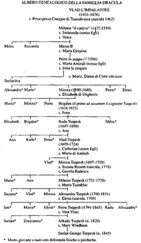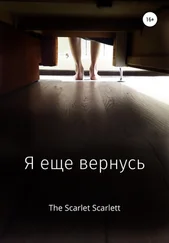The duchess’s chamber was of comfortable size, with a large arched window, vaulted ceilings, and walls paneled in dark, ornately carved wood. Unlike the duke’s, it consisted of a single room that featured a sitting area in front of the fireplace, a dressing area shielded from view by several garderobes, and a platform upon which rested a mahogany bed, its brocade curtains drawn. Near it were three cots, one of which I occupied on those nights my husband traveled. Bona’s chamber resembled most of the other rooms in Castle Pavia, which consisted of a two-story stone square large enough to comfortably house five hundred souls. Each corner of the square was marked by a great tower, and these corner suites were reserved for the most important personages and functions. On the upper floor, the northeast tower housed the duke’s suite of rooms, the northwest, his heir’s; the southeast and southwest towers served as the chancery and the library, respectively. On the ground floor, the tower rooms held the reliquary and the prison. Except for the duke’s, all rooms opened onto a long common hall, or loggia, overlooking the massive interior courtyard; the loggia on the first floor, which housed the servants, lesser visitors, butchery, prison, bathhouse, laundry, and treasury, was open to the elements. For the comfort of the duke and his family, however, the upper loggia was bricked in, though there were windows to catch summer breezes, with shutters to close out winter winds.
As a girl, I used to race down the long, seemingly endless halls, barely avoiding collisions with the servants who filled them. One day I determined to count every room on both floors: There are eighty-three if you include the saletti, the little sitting rooms that protrude from the chapel, the chamber of rabbits, and the chamber of damsels and roses, the last two named for their murals. My favorite was the first-floor chamber of mirrors, with a floor of glittering mosaic and a ceiling of brightly colored glass.
Bona’s fireplace rested in the center of the wall adjoining her son’s apartment, and so we sat many steps away from either the window or the chamber door. I sat nearest the latter, which was open to allow the servants who were packing the duchess’s Christmas luggage easy access.
I should have relaxed in the fire’s warmth and simply listened to the singing. One lad’s voice was so hauntingly beautiful that when he performed a solo, Bona stopped in her sewing and closed her eyes at its sweetness.
I closed my eyes, too, but opened them immediately at the sudden welling of tears and the unwanted tightness in my throat. For the third time in the last hour, I set my sewing down and—as discreetly as possible, moving behind the seated group—stepped rapidly away from the hearth into the cool shade at the arched window, and looked out.
To my left, the feeble sun was dying behind thick winter clouds that threatened snow; before me stood the formal garden, withered save for spots of evergreen. Straight ahead, to the north, the Lombard plain stretched out, much of it obscured by the bare, spidery-limbed trees in the nearby park where the duke hunted. A day’s ride away, beyond the plain and my sight, stood the Alps; to the east, the kingdom of Savoy, where Bona had been born.
My Matteo would not be coming from the north, but court life required me to attend the duchess, and quash all yearning to run southward down the endless loggia to the library, where I could climb the steps to the southwest watchtower and stare out toward Rome.
Matteo da Prato served the duke as a scribe, occasional courier, and minor envoy. His mother had died giving life to him, and his father had died not long afterward; like me, he had been adopted by a wealthy family and educated. His talent for breaking ciphers and creating impenetrable code had earned him the attention of the duke’s top secretary, Cicco Simonetta. I first set eyes on him seven years ago, when I was ten and he seventeen, new to Milan and freshly apprenticed to Cicco; I never dreamed then that we should ever marry.
I had never expected to marry at all.
Back at the hearth, Bona noted my dismay. When the singers caught their breath between arrangements, she called softly, “He will not come today, Dea. I’ve said a hundred times, there is nothing more certain than delays during winter travel. Don’t fret; they’ve already found lodging and are sitting comfortably right now just as we are, in front of a fire.” She paused. “Time to shutter the windows now, anyway. It’s growing bitter.”
She did not remark on the fact that it had been the coldest winter anyone at court could remember.
“Of course, Your Grace,” I said. At my words, a gust of wind stirred the clouds; before my eyes they writhed and reformed into a haunting image: the shape of a man dangling in the darkening sky as if an invisible God held him by one ankle, his opposite leg bent at the knee to create an upside-down four.
The hanged man, Matteo had called him.
I pushed the heavy slatted panels into place and latched them, then hesitated an instant to flick away a tear. When I faced Bona again, it was with a false smile.
Reason, if not the clouds, said that I had no cause to worry. Matteo was a seasoned traveler, and the guests he was escorting from Rome to Milan were papal legates, too precious to risk by traveling in bad weather. Matteo was also armed against bandits, and the legates traveled with attendants and bodyguards. Yet my anxiety would not ease. I had awakened that morning in a peculiar panic from a dream of a double-edged sword pointed downward, dripping blood onto the frozen earth, while a voice whispered flatly in my ear, Matteo is dead.
Before morning mass, I had lit a second candle for Matteo, so that God would be doubly sure to hear my prayers. Bona noted it when she arrived in the chapel, and when I knelt beside her, she set a comforting hand upon my forearm.
“God hears,” she said softly, “and I am praying, too.”
Her kindness forced me to flick away tears, yet my worry did not lift; in my mind’s eye, I saw Matteo suspended upside-down, pale and unconscious.
After mass, I was gratefully distracted by the task of supervising the chambermaids as they prepared the duchess’s and children’s households for the return to Milan.
At noon, I noted the gathering snow clouds but told myself stubbornly that Matteo, the smartest man I knew, would mark them, too, and hasten his progress; but as the sky darkened, so did my mood, and sunset brought a growing dread. By the time I shuttered Bona’s window, I was again fighting back tears.
Yet I returned to my embroidery with a vengeance, and with each jab of the needle uttered a silent prayer: God, protect my husband. Surely God would hear. No one was more deserving of protection than Matteo; no prayers were worthier of being granted than Bona’s.
My stitches were large and careless and later would have to be snipped and resewn—not today, though, for the light was failing and soon, when Bona gave the word, all needlework would be retired. The male quartet began again to sing, a lively folk tune that made Bona smile and Caterina keep time with her feet.
My eyes were on the pool of white silk in my hands; I did not see what caused the first loud clatter, but I looked up in time to see Francesca’s iron peel drop with a resounding clang to the stone fireplace floor, scattering nuts in the flames. Francesca looked down at the carpet in horror, and threw up her hands; the act caused her shawl to slip from her shoulders. One edge spilled into the hearth and ignited, while she, unaware, stared down at a red-hot stone smoldering on the carpet at the very feet of the ducal heir.
Francesca let go a shriek, which was quickly seconded by Bona and the nurse, who dropped the brush at once and lifted her charge, Gian Galeazzo, straight up out of his chair, overturning it in the process. Ermes screamed for his mother. The quartet of singers—the coddled cream of Europe’s musical talent, and loyal to the duke’s family insofar as their generous salaries were paid—were quickly out the door.
Читать дальше












